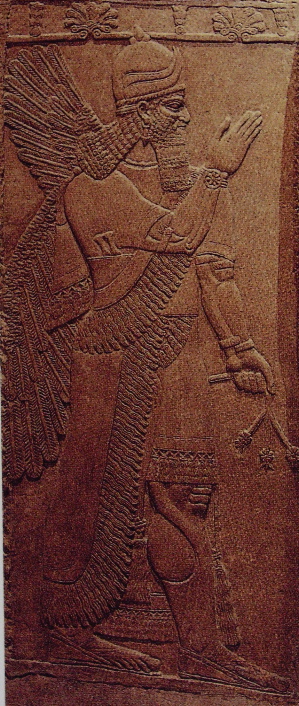It is now commonly understood that people develop a sense of personal value in the world through an appreciation of their own archaeological and historical past. The material remains of the past, however, cannot simply be read like a book, or colected with ease, but require the input of people to actively interpret and collect them. This seems to be the purpose of archaeology, but this is not so simple.
Until recently archaeologists were largely unaware of the historical context in which they worked. As a result they did not recognise the ethical and political ramifications of their work both within their own countries and, especially, in the countries of others. It seemed reasonable for archaeologists to think that they were the specialists who interpreted the past, and as such were the most appropriate people to decide what aspect of the past to collect, to study and present to others.
Archaeology as a study develops from a colonial past, in which antiquarians and collected and presented the material remains of other societies to fulfil their own interests and those of the society within which they lived. The major European (and later American) powers have seen themselves as the natural inheritors and apex of the development of civilisation through the great developments of the Near East, Egypt, Greece and Rome. Additionally archaeologists have often thought of themselves as saving the past, or saving past civilisations, from 'destruction'.
It has become clear that this 'rosy' view of archaeology and archaeologists is not quite true. It has been clear that archaeologists have interpreted the past (or provided interpretations for others) that support very particular political viewpoints. The classic example is the use of culture history by Gustav Kossina to chart the rise of the Aryan peoples in Nazi Germany before the Second World War. Although the discipline of archaeology may be very different today, the early interests of social evolution and the nature of our Western inheritence are still paramount. In America, the genuine attempts by archaeologists in the 1930s to excavate 'lost' american civilisations are now seen by Native Americans as attempts to steal their past and their ancestors from them, and in so doing to marginalise their role in history.
In recent years it has also become clear that the long-term popular interest in archaeology also creates an eager antiquities market in which modern wealthy collectors (including museums) compete to acquire the great antiquities. This has resulted both in the great acccumulations of antiquities in a few wealthy nations and in the private collections of wealthy individuals. It has also resulted in the looting of sites and museums to supply these antiqities and in the use of archaeologists and other specialists to authenticate thhese treasures. Archaeologists have begun to worry about the effects of this wholesale loooting on the long-term future of archaeology, whilst other countries now desperately seek to have their unique and priceless antiquities returned to them.
The first part of this module covers these ethical and political problems associated with the practice of archaeology and the presentation of the heritage of others. It begins with the classic ethical and political problems of modern archaeological practice: the problem of the excavation, presentation and reburial of human remains, and the acquisition of cultural antiquities by museums and private collectors. We shall then also look at other areas that are less obviously problematic: the work of UNESCO to develop a World Heritage Site list, the role of foreign schools of archaeology abroad and finally the development of a National Trust for England. The links on the left provide access to the relevant pages concerned with these topics.
